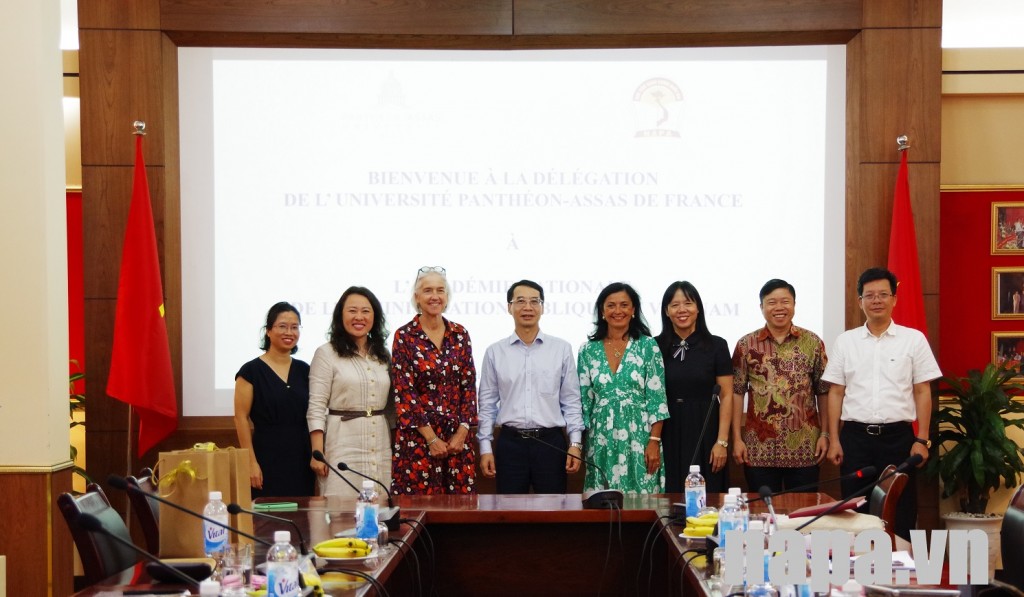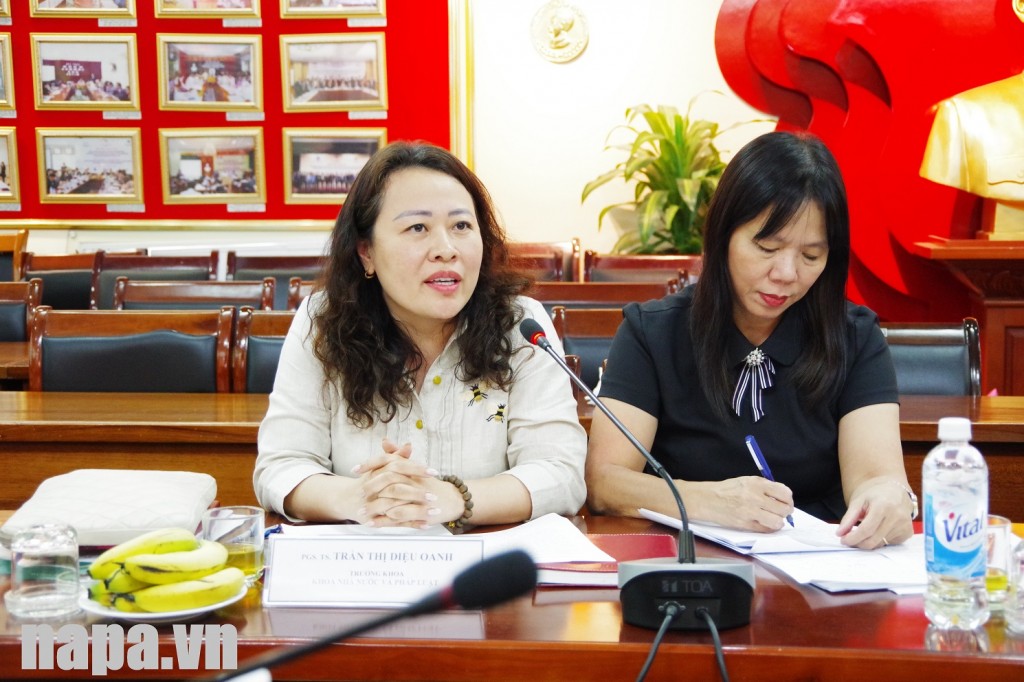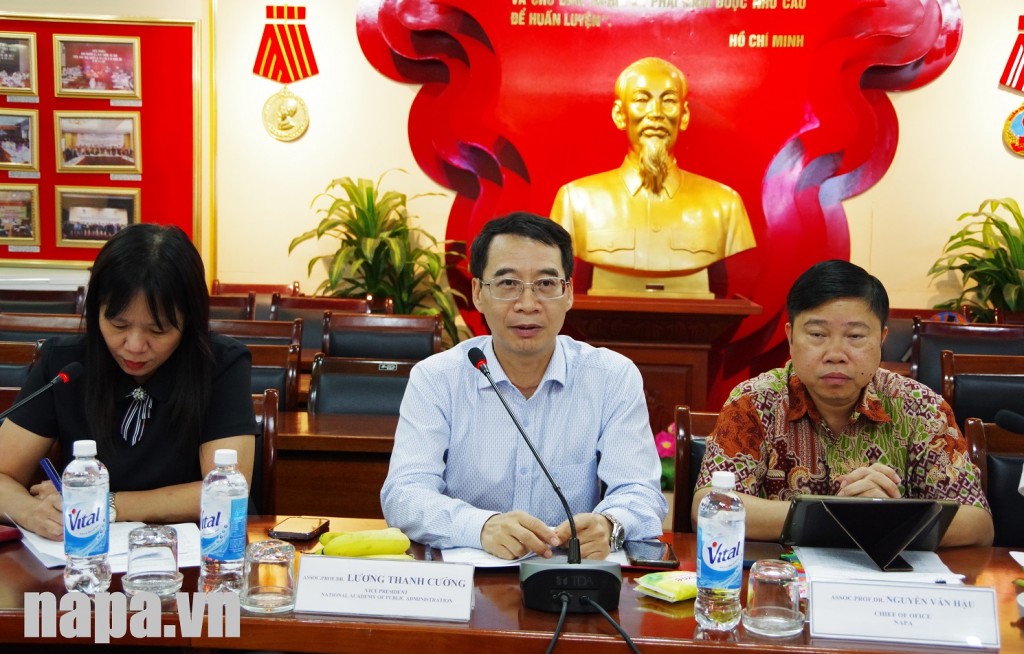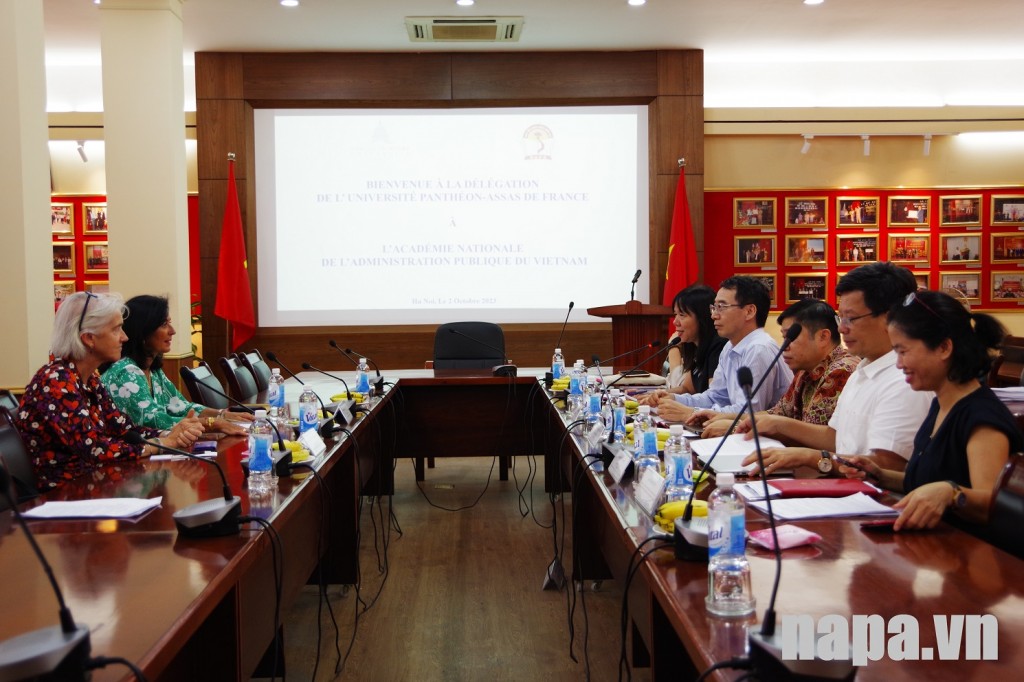On October 2, 2023, the National Academy of Public Administration (NAPA) had a working session with the delegation of Paris-Panthéon-Assas University, French Republic. On behalf of NAPA, Assoc. Prof. Dr. Luong Thanh Cuong, NAPA Vice President, chaired the meeting.
From the Paris-Panthéon-Assas University, there were Ms. Emmanuel Chevreau, Vice President in charge of International Affairs and Ms. Marie Hellen Monserie-bon, Vice President in charge of Research and Training. On the NAPA’s side were Assoc. Prof. Dr. Luong Thanh Cuong, NAPA Vice President and leaders of a number of NAPA units, faculties, and departments.
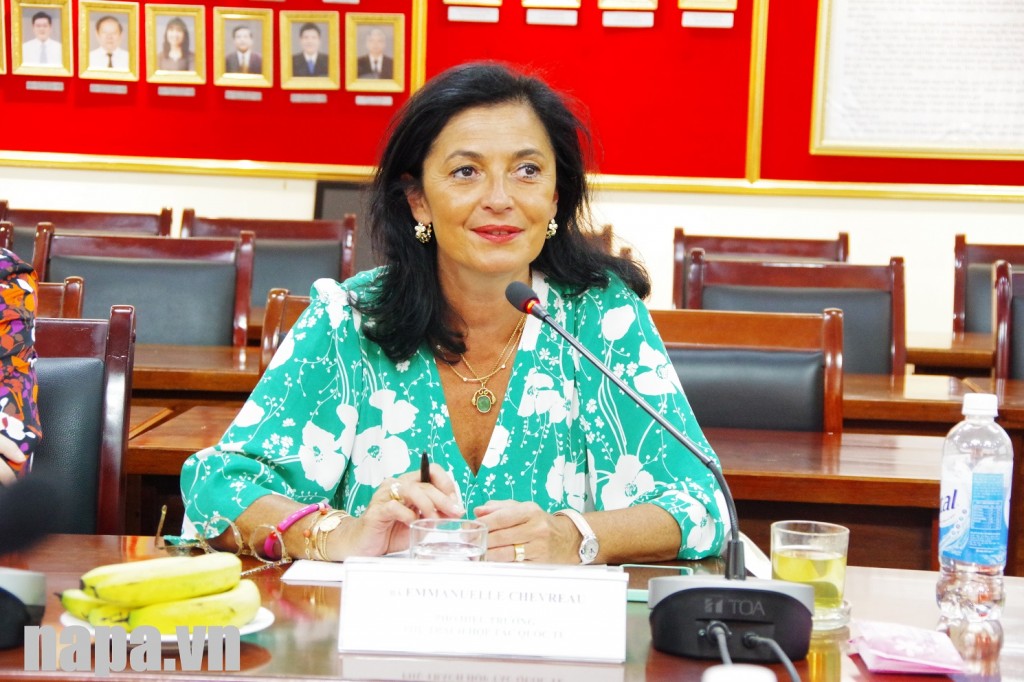
Ms. Emmanuel Chevreau, Vice President in charge of International Affairs, Paris-Panthéon-Assas University, speaking at the session.
During the working session, Ms. Emmanuel Chevreau, Vice President in charge of International Affairs at Paris-Panthéon-Assas University, expressed her gratitude for the warm welcome extended to the delegation by NAPA. She mentioned the opportunities for collaboration between the two sides during the delegation to the French Republic led by Assoc. Prof. Dr. Luong Thanh Cuong in June 2023, including discussions on university training cooperation between the two institutions. She hopes that NAPA and the Paris-Panthéon-Assas University can carry out close collaborative activities in university training or in a three-way collaboration involving NAPA, the French National Institute of Public Service (INSP), and the Paris-Panthéon-Assas University.
In addition, both sides can proceed to sign a cooperation agreement and start immediately with student exchange programs for undergraduate or Master’s degrees at the University. Alternatively, the University may send students for an exchange program or participate in studies at NAPA for a semester of the academic year, depending on the terms agreed upon in the cooperation agreement. The Paris-Panthéon-Assas University can also accept doctoral students for research at the University, engage in joint supervision of research, and potentially obtain a dual degree. Ms. Emmanuel Chevreau added that the University has just recently joined the alliance of seven universities in Europe and has been operating closely and effectively, which is a significant advantage for the collaboration between the two sides.
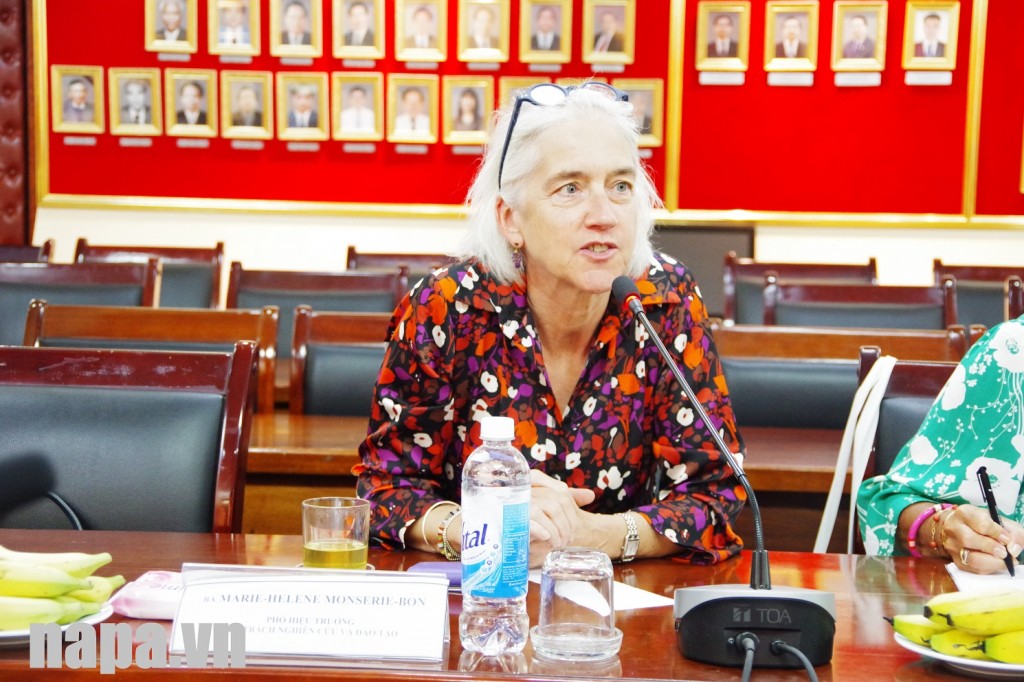
Ms. Marie Hellen Monserie-bon, Vice President in charge of Research and Training, Paris-Panthéon-Assas University speaking at the session.
Ms. Marie Hellen Monserie-bon, Vice President in charge of Research and Training, mentioned the University’s joint training programs in Viet Nam in the field of organizational management within the public sector. These programs are delivered in English, and the University’s lecturers are regularly present in Hanoi. The University also has a team of experts in human resource management, an area in which NAPA also excels. It is hoped that the collaboration between the two sides will be fruitful and yield positive results soon.
Assoc. Prof. Dr. Tran Thi Dieu Oanh discussed the desire for the two sides to soon have the opportunity to organize a workshop, especially related to the field of law. The aim is to advance collaboration towards jointly providing undergraduate and postgraduate programs in law.
Speaking at the working session, Assoc. Prof. Dr. Luong Thanh Cuong expressed his joy at welcoming the delegation at NAPA after his business trip to Paris in June 2023. He was pleased to meet Ms. Emmanuelle Chevreau, Vice President in charge of International Affairs of the University again. As a result of the business trip, in addition to the discussion on national governance and the role of the rule of law state in national governance, the two sides shared insights into undergraduate and postgraduate training programs, expressing the desire to establish cooperative relations. On this occasion, on behalf of NAPA leaders, Assoc. Prof. Dr. Luong Thanh Cuong proposed collaboration with the University several activities:
(1) Promoting exchanges to develop international joint training programs for bachelor’s and master’s degrees in law; collaboration on the exchange of undergraduate and postgraduate students; exchange of lecturers and officials between NAPA and Paris-Panthéon-Assas University.
(2) Cooperation in exchanging research delegations and field surveys; internationally linking training courses for public leaders and managers in ministries, branches and localities as needed.
(3) Co-organizing research activities, such as workshops, international forums, joint research, and exchange of scholars; sharing international research experiences and international publications.
(4) Collaborating and linking in higher education training and granting degrees in the dual-degree format.


